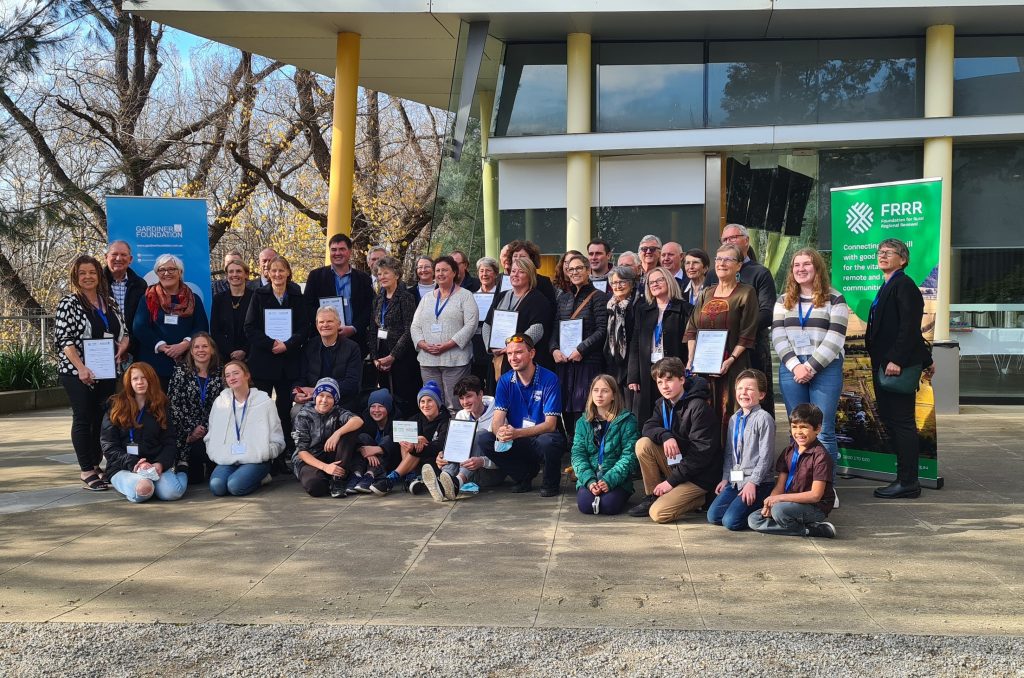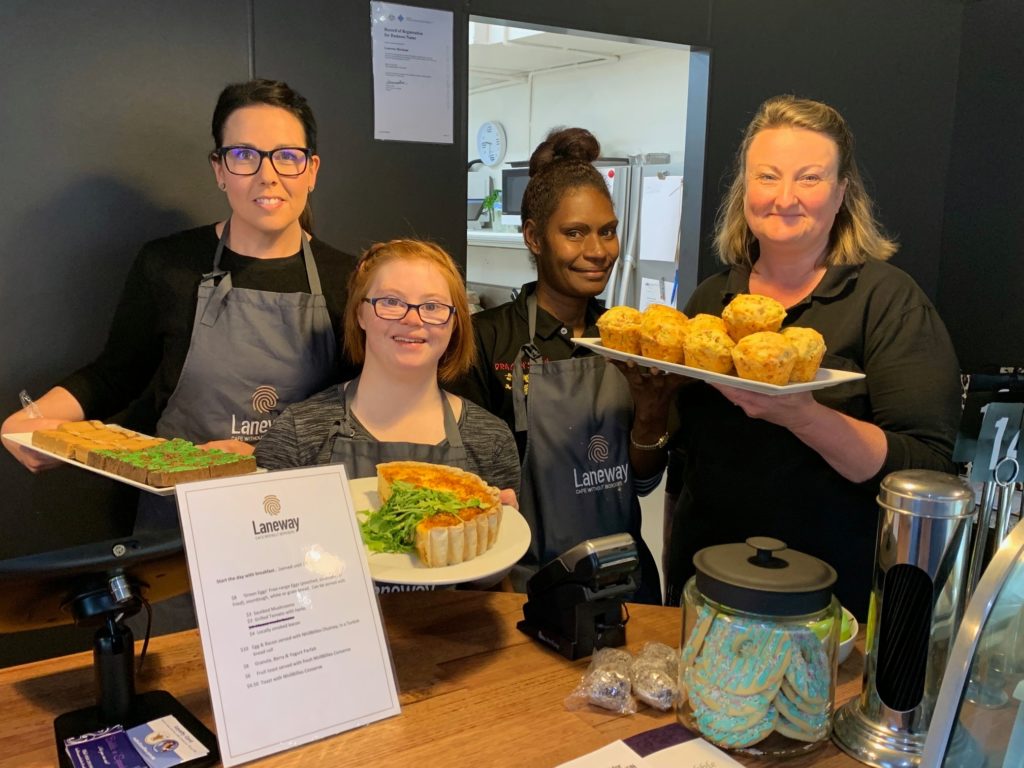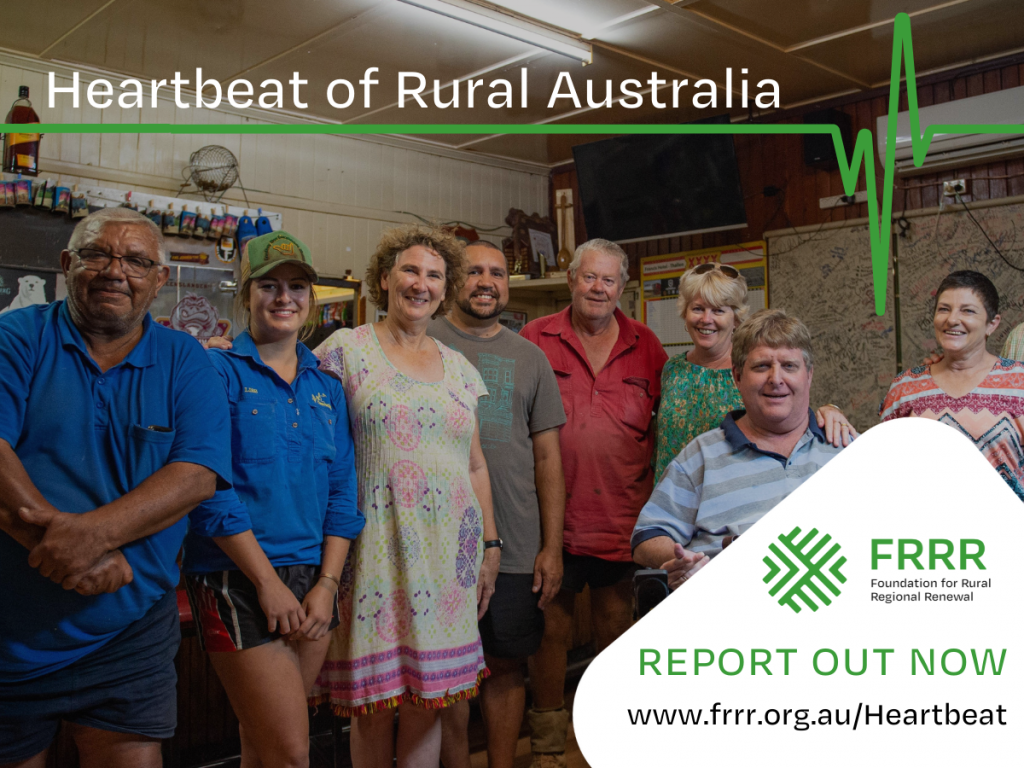Foundation for Rural & Regional Renewal (FRRR)
$120,000 in Gardiner Community Grants available
The annual Gardiner Dairy Foundation Community Grants Program (Gardiner Community Grants) has opened today. Delivered in partnership with the Foundation for Rural & Regional Renewal (FRRR), this round marks the 20th year of the program, which is focused on supporting communities across Victoria’s three dairying regions.

This year Gardiner Community Grants will encourage projects to focus on building the capacity of community organisations and improving digital connectivity. The new focus is in response to insights from FRRR’s Heartbeat of Rural Australia Report, which was published late last year.
The report highlighted that there was a significant digital divide in rural communities, compared to urban areas, and that local not-for-profit organisations needed capacity building support to be able to do their vital work, particularly following the impacts of back-to-back disasters, including COVID, on fundraising and volunteers.
A digital connectivity grant project might involve upgrading infrastructure and facilities, improving digital access or providing training that enables the community to benefit from digital services.
A building capacity grant aims to support organisations to sustain or grow the effectiveness of their operations. Funds may be requested for salaries to increase the organisations paid workforce, training for volunteers, upgrading office equipment or supporting strategic planning and improved governance.
The small grants program, which has $120,000 in available funds for grants up to $5,000, will continue to support a broad range of community projects that local groups identify can make their community socially, economically or environmentally stronger. Applications for events to enhance cultural vibrancy, volunteer planting projects to support environmental sustainability, extending education and training opportunities, support for infrastructure projects or programs to improve health and wellbeing are all encouraged.
Allan Cameron, Gardiner Dairy Foundation Chief Executive Officer, said Gardiner is committed to strengthening Victorian dairy communities and is pleased to be partnering with FRRR for the twentieth year to support innovative, community-driven projects.
“Investing in the communities that are at the heart of the Victorian dairy industry is critical to the sustainability of dairy farming in Victoria. Since launching the program with FRRR in 2002, Gardiner Dairy Foundation has supported over 500 local projects and distributed more than $2 million to Victorian dairy communities.
“Gardiner is committed to supporting the needs of the communities as they change and evolve, now, and in the future. That’s why, this year, we are encouraging initiatives around digital literacy and organisational capacity, to help local groups respond to the current needs of Victoria’s dairy communities,” Mr Cameron said.
Natalie Egleton, CEO of FRRR, said that the Heartbeat of Rural Australia Report called for more support to go to community groups to address critical issues, and it’s wonderful to see Gardiner Foundation respond.
“Our Heartbeat Report highlighted significant gaps and challenges for rural communities, but also highlighted the critical role that local not-for-profits play in meeting the needs and filling the gaps in rural communities. That’s why we value our longstanding relationship with Gardiner, because they, like us, are committed to working together to support these vital community groups in the long-term.
“For 20 years, Gardiner’s Community Grants have consistently boosted Victorian dairy communities with contributions towards large important community projects, and significantly enabling many smaller community organisations and projects, often for items and activities that are less accessible through government or major philanthropic funding,” Ms Egleton said.
Applications for the Gardiner Dairy Foundation Community Grants Program open Tuesday, 1 March and close Wednesday 13th April 2022 at 5 pm AEDT. More information can be found at – https://frrr.org.au/gardiner-communities-grants/.
Significant funding to rebuild and recover from COVID
The Foundation for Rural & Regional Renewal (FRRR) has welcomed a significant boost to its flagship Strengthening Rural Communities (SRC) grant program, following an investment of more than $5 million from the Australian Government.

This funding, which will be available over the next two years, recognises the significant and long-lasting impacts of COVID and the localised effort needed to recover and rebuild vibrant remote, rural and regional communities.
From today, community groups and not-for-profit organisations in remote, rural and regional communities can apply for funding to support the recovery process, reduce social isolation, foster stronger, more resilient communities, or sustain these vital local organisations in their work.
The Australian Government’s support means that there will be $800,000 available in this round of SRC grants specifically for COVID-related projects. The COVID stream will have two tiers of funding – one will offer grants of up to $10,000 to groups working in communities of fewer than 50,000 people, while a second tier will offer grants of up to $50,000 for groups in remote, rural or regional communities (as defined by Australian Bureau of Statistics’ Australian Geography Standards).
Natalie Egleton, CEO of FRRR, said that the Australian Government’s investment is sorely needed and will be greatly appreciated by local organisations that have been struggling with raising funds, and coping with the effects of volunteer fatigue.
“At the end of last year, FRRR commissioned the Heartbeat of Rural Australia study, which confirmed that the pandemic has weakened the ability of community organisations to play their various roles in the community, at a time when, for many, demand for their services has increased.
“Many community groups that took part in the study – especially grassroots organisations with revenue of less than $50,000 – saw significant reductions in income as a result of not being able to run fundraising events and income-generating activities and, in some instances, funders redirecting their support. It’s also impacted the number of people able to volunteer, meaning that those remaining have been called on to do more, for longer. It’s no wonder people are exhausted.
“This program will help to rebuild rural communities by funding projects that respond to the ongoing impacts of COVID and will help communities get back on their feet.
“We’ve deliberately kept the SRC program flexible, as we know needs will be different from place to place, and from group to group. Projects eligible for funding could include supporting, training or attracting volunteers; running events; enhancing community facilities; developing services that assist people experiencing disadvantage; or purchasing equipment or resources that strengthen local organisations. We are very grateful for the Australian Government’s support and the commitment that they are showing to strengthen and rebuild rural communities,” Ms Egleton said.
In addition to the COVID funding stream, the SRC program still has grants available to support communities affected by the 2019/20 Black Summer bushfires. There is $650,000 available this round, through grants of up to $25,000. A third, more general stream of funding offers Small & Vital grants of up to $10,000 for initiatives that strengthen and support communities of 15,000 or fewer in remote, rural or regional areas.
To learn more about the program, and to apply, visit https://frrr.org.au/SRC. Applications close 31 May 2022 at 5pm AEDT.
Cumulative disasters have taken a heavy toll and left local leaders in remote, rural and regional communities feeling “uncertain”, “frustrated”, and “tired/fatigued”, although hopeful, according to a study released today.

Commissioned by the Foundation for Rural & Regional Renewal (FRRR), a charity dedicated to supporting grassroots community groups and not-for-profits in remote, rural and regional Australia, the Heartbeat of Rural Australia survey sheds a light on these often unseen and unheard organisations and shares their firsthand experience of how non-metro communities are faring.
FRRR CEO Natalie Egleton, says that the study is among the first to attempt to quantify the critical role these groups play in remote, rural and regional communities, as well as what needs to change if they are to continue to deliver services that sustain rural communities.
“These organisations are vital to the health, wellbeing and prosperity of these communities. In particular, they provide vital social connections; manage and maintain critical community infrastructure; deliver essential services to community members; and a range of other supports.
“These small groups, most of which are not normally eligible for either government funding or philanthropic support, are the backbone of their communities, with nearly 90 percent of respondents saying they play some kind of economic role. Many are responsible for more than one aspect of life in their community and almost all play a critical cultural or social role.
“What this study really highlighted was that if they were to fold – which some told us could occur without additional support – the communities they serve may well ‘‘wither and die”. At the very least, there would be significant gaps in services, the burden for which would move to government and the private sector,” Ms Egleton explains.
The study highlighted a lack of digital connectivity is significantly hampering rural Australia’s ability to thrive, and to maintain critical social connections.
“Access to digital technology in rural Australia really hasn’t improved in decades. Even where there is connectivity, it is expensive. While external funding often covers the hardware, there is insufficient income to cover the ongoing operational costs such as WIFI access, managing cyber security and training volunteers.”
There were also key issues raised around workforce attraction (including housing availability), mobilisation and infrastructure, which smaller and more remote communities require tailored solutions to, according to Ms Egleton.
While more than half of respondents reported that uncertainty is of greatest concern to them, resulting in “increased general stress / mental health”, by far the most detrimental effect of the pandemic has been the inability to meet with one-another, resulting in isolation, reduced wellbeing, and increased stress – especially for those also recovering from disasters.
The onset of the pandemic weakened the ability of community organisations to play their various roles in the community, at a time when, for many, demand for their services increased. Many – especially organisations with revenue of less than $50,000 – saw significant reductions in income from not being able to run fundraising events and income-generating activities and, in some instances, funders redirecting their support.
“At a community group level, the disruption has been constant, with the effects of cumulative disasters topped off by the pandemic. This has left local communities in a constant state of anxiety and uncertainty.
“It’s also meant that community groups – more than half of whom are made up entirely of volunteers – are being called on to do more, for longer. The reality is that they are not resourced to endure this level of disruption. Yet, in many smaller communities, they simply have had to do it as there is no one else. That is fatiguing; that’s the pure exhaustion that we heard – the effort to keep focusing on your town, your small business community; keeping people connected and supported – especially when there are so few volunteers bearing the load,” notes Ms Egleton.
FRRR is calling for those that are concerned about rural communities to come together to better target support for rural, regional and remote not-for-profits and community groups.
“This report gives us a great opportunity to step back and consider how we can better support and resource these organisations to do what is critical work – and work that only they are really able to do effectively because they are in and of these places. At present, the broader funding mechanisms and policies don’t value these organisations in line with the contributions that they make.
“We are still working through the findings in detail, but it certainly points to an opportunity to come together – philanthropy, government, corporations and individuals – and explore how we can better support these groups for the long-term. We need to take a coordinated approach to removing many structural barriers that are evident in this research if we want rural Australia to prosper,” Ms Egleton explains.
To explore the full report, head to www.frrr.org.au/heartbeat. FRRR has also partnered with Seer Data and Analytics to make the full dataset available online. The data can be cross-referenced with other publicly available data, enabling community groups in particular to better advocate for the support that they need to survive.
FRRR will host two webinars to explore the findings in more detail. The first, focused more on community groups, will be held on Tuesday 30 November, and a session tailored to funders, policy-makers and the broader sector will be held on Wednesday 1 December. Both sessions will begin at 12.30pm AEDT and be held online. Register at www.frrr.org.au/heartbeat.

